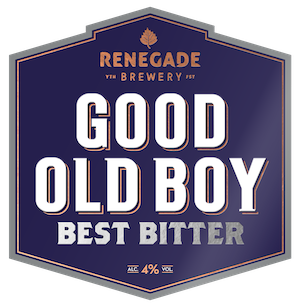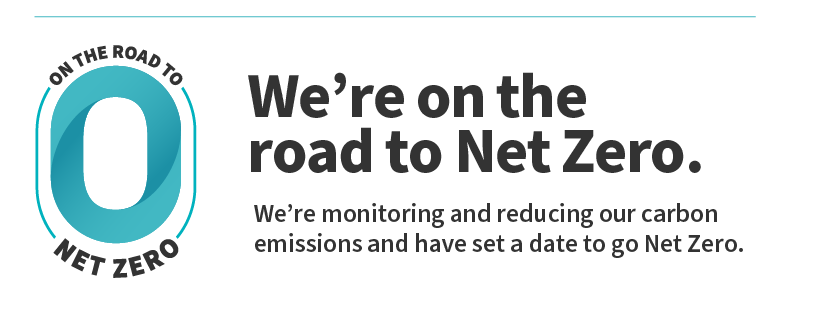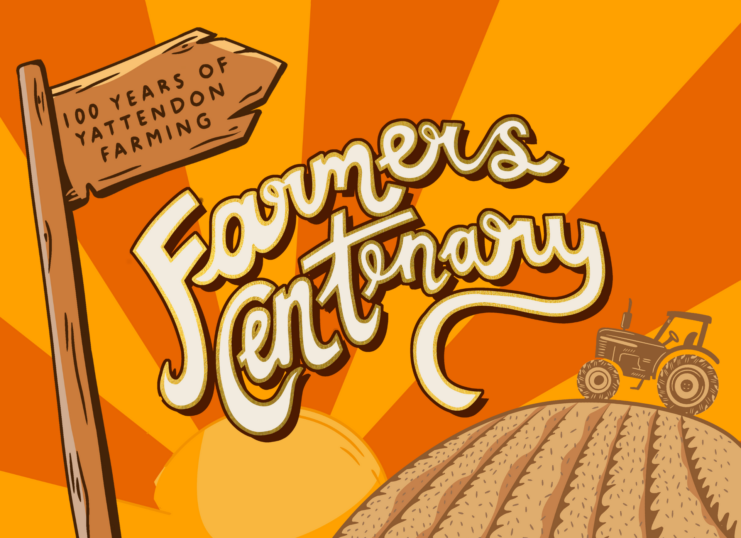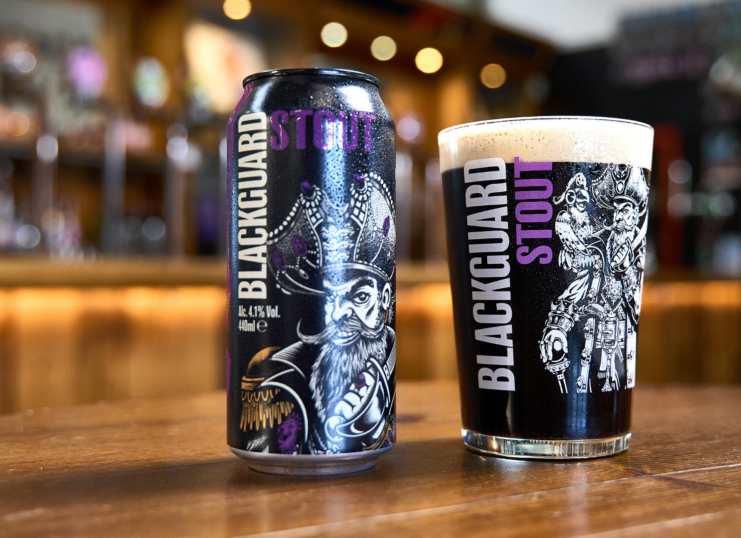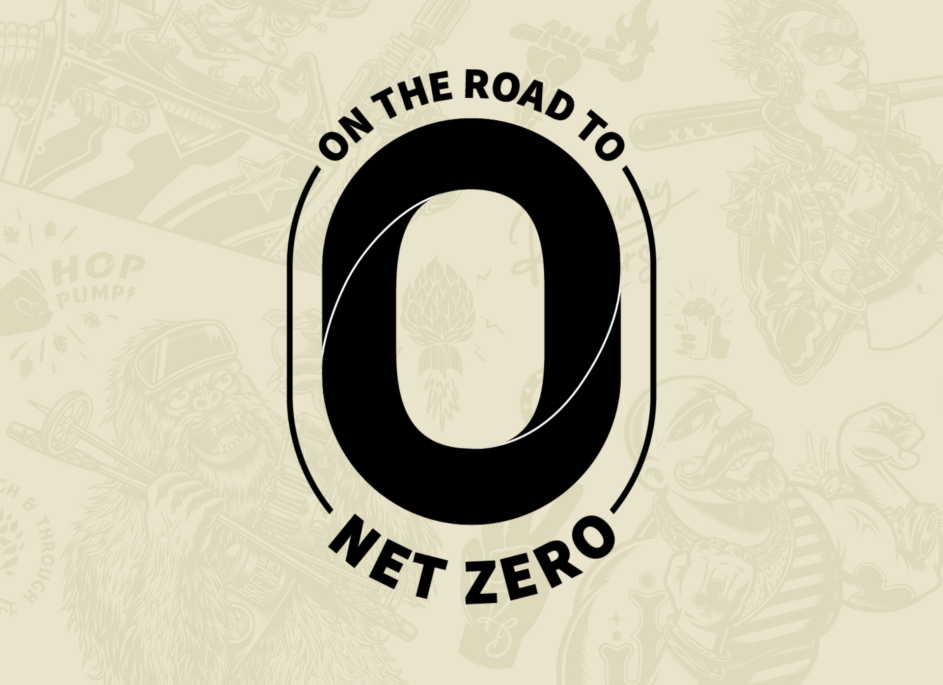
You can only improve if you know where you’re starting from…
In January 2023 we partnered with a company called Net Zero Now. They’re a team of experts understanding how to “measure” Carbon – and calculate the impact of our activities. They could help visualise our starting point and then help us take the first step on our sustainability journey.
The aim was to understand in detail our carbon footprint for the calendar year 2022 – 2023. This gave us our baseline, our starting point & something to work from. The process took just under three months to gather the data from scratch; from understanding the quantity of hops coming from which continent, the recyclable materials in pre-existing materials on site, through to the proportion of waste streams that can be simplified and recycled.
We’re fully committed to sustainability and the biodiversity agenda. We’re engaging our team, challenging our thinking and ways of working, and consciously bringing these elements into our decision making.
Sustainability can be easily viewed as no more than looking at reducing carbon or increasing recycling – and kept at this generic level. That’s not how we want this to be at Renegade. We have a passion for trying to do what is right and best, not necessarily what’s easy & simple. The engagement of the whole team on site in this journey, and to understand what we can all do is a commitment to the bigger picture: the sum of all the small actions will cumulatively add up to being a part of a much larger impact.
The largest element for brewing unsurprisingly is malt, so that got us thinking…
We’ve got a lot of farmable land around us, so why not look into the possibility of using barley grown in our own back yard? We could work with the farm managers at Yattendon Estate to select barley varieties best suited to the soil on which they are to be grown. This in turn supports the Integrated Farm Management approach the farm managers use, as they plan and look to manage the soil health and enrich the environment with a long term view. Typically, on a 20 – 25 year horizon.
The Estate farms are at the forefront of sustainable farming and enhancing biodiversity, and could be easily classified as “leading edge” in being part of the LEAF (Linking Environment and Farming) demonstration farm network. It’s one of 40 farms across the UK going beyond best practice to support an integrated approach to both sustainable production and supporting the environment.
As a local independent craft brewery, we’re now building a working relationship with the farm managers to enhance our drive for the local environment as we aim to grow our brewing barley. What does this typically mean?
- No use of insecticides, increasing the drive to being biodiverse positive
- Promotion of pollinators and natural ‘predators’ through the creation of nature corridors across the farmed landscape; encouraging beneficial insects to protect & support the crops
- Increasing the area of land dedicated to habitat creation and supporting wider biodiversity, beyond industry targets to 15% of the farmed area. This is more than double the industry target to ensure a thriving natural environment
This autumn in collaboration with the University of Reading, further trials are being planned to study and independently quantify the effect of increasing the land area committed to supporting Biodiversity, and it’s impact on the farming operation. This work will not only support decisions of how non-farming areas are manged but are also now investigating how the use of in field flower strips can draw beneficial insects across the fields and into the crops, so reducing synthetic inputs.
Ongoing field trials are also looking at reducing reliance on inorganic nitrogen sources and regenerative methods to “naturally” introduce nitrogen back into the soil. Early trials of legume living mulch mixes are being sown between the rows of cereals to not only capture nitrogen but also act as a weed suppressant, reducing the requirement for herbicide applications to crops. Detailed soil and plant analysis will ensure that the crops can reliably be grown to meet the high quality specification required for malting.
The estate has been establishing cover crops ahead of planting spring crops for a number of years, protecting soils and preventing nutrient loss over the winter period, providing living roots to retain structure and support soil biology while providing a late season pollen source for pollinators.
We’re VERY excited to be a part of this evolutionary journey, and proud that this cutting edge work might encompass the brewing barley which will form part of our beer story soon. For more information and an insight to the farming practice, please click here.
Reduce, Reuse, Recycle
Our waste streams now focus on segregation at source and recycle/create circular use wherever practical. We’re challenging ourselves on how to innovate and complete things differently:
- None of our Waste goes to Land Fill
- In the calendar year 2022, we recycled 85.6% of our waste, rising to 92.9% as an average of the last 6 months of that year. The balance of went to Energy for Waste. Our 2023 target for recycling is 94.5%
- On site segregation into waste streams has saved 2400 road miles for collection and disposal and with on-site bailing of card we provide carboard recycling for the local community too
- Water reduction projects identified in 2022, and to be delivered in 2023, will see a reduction of 2L of water used per 1L of beer made – that will be in excess of a 20% saving
- Electricity: Our lighting is LED, with motion sensors fitted, and with 1088 solar panels being installed to our facility in 2023. This will generate 435MW’s or approximately 45% of our electrical needs
- Purchased Co2 will be reduced by at least 15.5% per litre of beer produced
- Compressed air will be used to dry cans and bottles post filling, but prior to be packaged in cardboard outers. The use of detectors to switch on / off the demand for air, depending on when the containers are passing ensures they are only used when needed, which creates an electrical saving comparable to 4000kwh
- Liquid Propane Gas (LPG) – our target is to reduce our use per HL of beer brewed beer by 10% during 2023
With a focus on sustainability, we are more focussed than before on the “circular nature” of the materials.
- Within our procurement process – we seek to understand what element of the material being sourced can either be recycled, or has been manufactured from recycled materials. This supports our vision and demonstrates our commitment to circular reuse and protection of virgin materials from nature, thus protecting the environment.
- We have installed a card bailer to bail the cardboard in the optimal configuration. This is in preparation to go direct to the papermill and be recycled. This will reduce Transport in the waste handling sector. In addition, the cardboard recycling service is extended to the Community, so those big deliveries with large amounts of card can all be sorted locally with the stress of storage removed.
- Spent grains that are the finished by product of the “Mashing” process, are 100% recycled to the local farm for animal feed, thus creating this farm-brewery-farm cycle of life.
Working on the element of recycling, but using this internally within the brewery means that the idea that “can anything be used again” becomes the mantra and a way of working.
- The obvious one that people will recognise; Kegs and Casks. These metal containers are reusable over many years. Even when they are damaged, they can either be repaired or recycled back into “new containers”
- Yeast by it’s nature and as part of the process will be in excess, so to reuse yeast for continual brewing is a simple way to control quality and reuse a readily available material
- Mains water used with the process to directly rinse bottles prior to filling will be recaptured and reused within the cleaning / housekeeping tasks, therefore achieving two uses of this water before it goes to drain. This will save 160,000L of fresh water each year
Our thinking, our plans and our thoughts for 2023
Working as a united team, and including the concept and measures of the environment in our daily routines – it’s as important to achieve productivity goals as it is our environmental ones. It’s now about implementing change in a steady and controlled manner.
- Potential installation of batteries for storage of solar electric. These can then be used to charge the Fork Lift Trucks overnight
- Install electric charging points for cars at our facility, so the growing number of electric cars can “charge” whilst they are visiting us.
- Encourage cyclists and provide suitable storage locations for bikes, and further encourage the “bike to work“ scheme.
- To improve and work with the local farmers; to support & source our barley from local farms, in the most biodiverse & sustainable way. Yields may be lower but this may be countered with Carbon offsetting and the reduced requirement for fertiliser / pesticides.
- Review the opportunities to utilise and electric delivery vehicle.
- Define a system to capture rainwater to flush toilets.
- The use of heat capture from the kitchen area to heat the office / Tap room facility.
